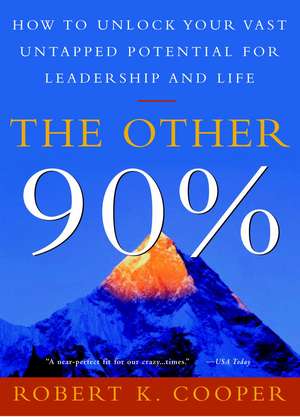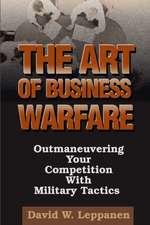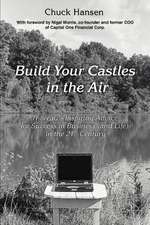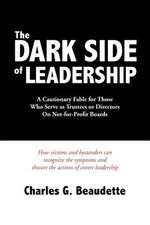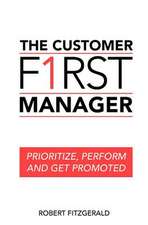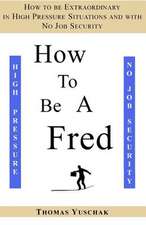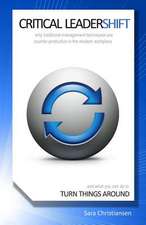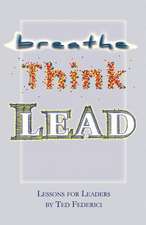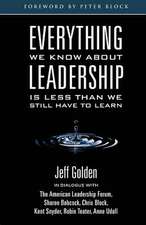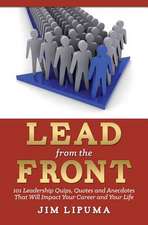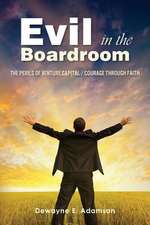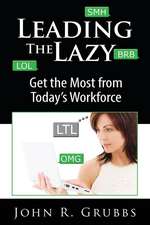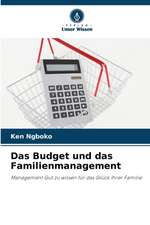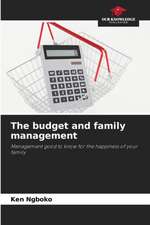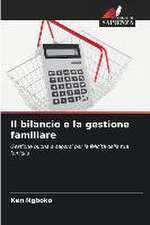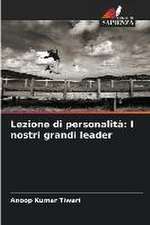The Other 90%: How to Unlock Your Vast Untapped Potential for Leadership and Life
Autor Robert K. Cooperen Limba Engleză Paperback – 30 sep 2002
Dr. Robert Cooper, a neuroscience pioneer and leadership advisor, urges us to take a radically different view of human capacity. We are mostly unused potential, he says, employing less than 10 percent of our brilliance or hidden talents. In easy-to-follow steps, he explains how to develop and apply the art and science of your hidden capacity.
The art is the motivation and inspiration coming from the wonderful stories that are the heart of The Other 90%. Dr. Cooper draws on his wide-ranging insights and experiences to show how it's possible to make a difference in yourself and others.
However, inspiration without a way to turn vision into reality is an empty vessel. Combining art with science, Dr. Cooper provides extraordinary help in the form of specific, little-known practical ways to use the latest research in neuroscience, performance psychology, and work physiology for excelling in a pressure-filled world. He shows you how to:
* Increase energy at work -- and have more energy for personal and family life.
* Activate the brain's "alertness switches" to defeat pressure and stress.
* Use not only the brain in your head but the ones in your heart and gut.
* Motivate exceptional ingenuity and performance in yourself and others.
The most exciting breakthroughs will not come from advances in technology but from a deeper realization of what it means to be most human and alive. Many of the choices that can dramatically change our lives are simple and practical -- yet few people know what these choices are or how to apply them in work and life. The Other 90% is your guide to new territory and new challenges.
From the Hardcover edition.
Preț: 116.24 lei
Nou
Puncte Express: 174
Preț estimativ în valută:
22.24€ • 23.22$ • 18.41£
22.24€ • 23.22$ • 18.41£
Carte disponibilă
Livrare economică 14-28 martie
Preluare comenzi: 021 569.72.76
Specificații
ISBN-13: 9780609808801
ISBN-10: 060980880X
Pagini: 336
Dimensiuni: 147 x 234 x 23 mm
Greutate: 0.33 kg
Editura: Crown Business
ISBN-10: 060980880X
Pagini: 336
Dimensiuni: 147 x 234 x 23 mm
Greutate: 0.33 kg
Editura: Crown Business
Notă biografică
Robert K. Cooper, Ph.D., is a faculty member of the "Lessons in Leadership Distinguished Speaker Series." Called a "national treasure" by Professor Michael Ray of the Stanford Business School, Dr. Cooper is recognized for his pioneering work on excelling under pressure and the neuroscience of trust, initiative, and commitment. He has designed and presented leadership development programs for many organizations, including Arthur Andersen, 3M, Ford, Sun Microsystems, Novartis, and Allstate.
From the Hardcover edition.
From the Hardcover edition.
Extras
Chapter 1
Be An Original
I got off to a bad start in school. When I arrived for my first day, inside was a desk that had an index card on top with my name on it. I walked over and sat down. Lots of kids were milling around. The 8:00 bell rang and the others made their way to their seats. My teacher, Miss Robinson, a rotund woman with grey hair tied up in a bun, gazed sternly as she sized us up.
She clapped her hands and called for attention, which didn't work well. She shouted for quiet. The students near the windows kept jabbering. With a formidable glint in her eyes, she raised something in the air: a thick, metal-edged yardstick, covered with dents, probably from the backsides of the disobedient. She began striking it on the edge of her desk.
It was then that I gauged the distance to the door.
The first thing we did was review the rules. Sit still. On your bottom with your back straight in the molded plastic chair. No speaking unless spoken to by the teacher. No gum chewing. No spit balls. No curse words. No looking cross-eyed. No funny faces. No burping. No laughing. No questions except during Question Time; no answers except from her. Know your place in line. Don't get dirty or grass-stained during recess. Ask permission to go to the bathroom. Don't get too excited. Don't tell jokes. Never get out of your place in line. Do everything in sequence. The most important thing was the report card, which she called the key to "having a good life."
After about fifteen minutes, I knew this wasn't for me. I imagined my younger friends outside on that sunny September day, playing in the turnaround at the end of our street. I knew they would be getting ready to start a ball game or hike off into one of the nearby wooded parks on some adventure, watching frogs, searching for ghosts, or saving lost dogs. To my young mind, this felt like the key to life, not a report card.
I rose and went for the door.
"Sit down, Robert!" ordered Miss Robinson. All eyes turned to me. I hesitated for only a moment. She was rounding her desk, yardstick in hand. I bolted for the door. The room erupted with shouting children.
"Stop!" she yelled.
By the time I had cleared the edge of the playground and jumped the fence, I encountered a group of safety patrol members, fifth and sixth graders, returning from guarding the street corners, on their way to class.
"Stop him!" shrieked Miss Robinson from the doorway. My shoes were laced tight with double knots. I never looked back.
The exact distance from the schoolyard to the side door of my house was three and a half blocks. My four-year-old friends, who were indeed playing ball in the turnaround, cheered wildly as they saw me running up the final steep hill toward home, chased by someone twice my size with a white belt across his chest and a silver badge. He never got within twenty feet of me.
If Everyone Else Is Doing It, Don't
I began my school life on the wrong foot. But at least it was my own foot. I have always wanted to learn how life could be and how the world really works. Those things are not always emphasized in school curricula.
One of the unwritten codes I came to believe in was, "If everyone else is doing it, don't." Through the years I have learned that when using this approach many individuals in all walks of life have been able to call forth more of their best.
When we suppress our originality, we lose touch with the source of our vitality and initiative. The greatest learning and achievements come not from standardized group work but from the unique efforts of individuals. In this regard, the human spirit has its own set of rules. In many ways, it is rebellious. The imperative to live life differently, on our own terms, keeps building until it breaks through the surface. It is then up to us not to let it fade away.
When Rosa Parks refused to do what everyone else was doing on a December evening in 1955, American history was forever altered. She had been returning home on the bus, at the end of a long day of working. "I was sitting in the front seat of the colored section," as she tells it, "and the white people were sitting in the white section. More white people got on, and they filled up all the seats in the white section. When that happened, we black people were supposed to give up our seats to the whites. But I didn't move. The white driver said, 'Let me have those seats.' I didn't get up." Her courageous refusal to accept an inhumane practice has been hailed as a defining moment of the American civil rights movement.
Thomas Edison is another example. On his first day of school, Edison was brought home by his kindergarten teacher, who told his parents, "He's an imbecile and unteachable." Edison remembers, "I was always at the foot of the class. I felt my teachers saw no potential in me and that my father thought I was stupid."
Virtually deaf, fired from countless early jobs, Edison purposely marched in the opposite direction of conventional thinking-and as a result he played a major role in inventing the twentieth century. He left us with 6,000 inventions that changed the world, three million pages of notes and diagrams, and is credited with founding scientific teamwork.
Another person driven to go against what everyone else was doing was the "Lone Eagle," Charles Lindbergh. Most of us know of him as the pilot of The Spirit of St. Louis, the first person to fly solo across the Atlantic. Few of us know that as a researcher at the Rockefeller Institute, he amazed the medical profession by inventing the blood centrifuge and the artificial heart and lung. These life-saving devices grew from his deeply felt desire to do what others weren't doing. When no one else would fly a supply of pneumonia serum from Wisconsin to Quebec to save the life of one of his closest friends, he did it himself.
When the Cooper family council met to discuss my truancy problem, I was firmly reminded that reading, writing, and arithmetic are important skills, and that a five-year-old doesn't get to make the rules. But I could tell from a certain twinkle in my grandfather's eye that no one thought I was entirely at fault, and from a certain sternness in my mother's look that the school officials would be encouraged to create a more hospitable learning environment for newcomers. I returned determined to make the best of my time in school.
As I continued asking questions and showing that I was willing to work hard at the things that mattered, it seemed that many of my teachers-even Miss Robinson-began to go out of their way to treat me as an individual instead of just one of this year's students on a class roster.
In fifth and sixth grade, I served on the safety patrol. I helped protect the other kids from strangers and cars, but I never chased down anyone who was running home. When I could, I talked with them or ran beside them. An independent spirit is never something to take lightly. Without it, no one stands out from the crowd.
Another of the things I learned about originality is that you can't take it for granted. If you want to keep your independence, good intentions or willpower alone won't do it. It takes something rare but very practical: a mechanism that makes it a reality.
One Good Mechanism Beats a Hundred Good Plans
A distinctive, learning-filled life results from a succession of small, specific choices made each day. There's a world of difference between imagining such a fulfilling life and actually living it. It is through taking new actions that we learn to awaken and apply our hidden capacity. If you know by doing, there is no gap between what you know and what you do.
There's something in the way, however. A powerful part of the brain, the amygdala, wants the world to run on routine, not change. Located within the limbic system, an ancient area of the mind that deals with the way you perceive and respond to the world, the amygdala relentlessly urges us to favor the familiar and routine. It craves control and safety, which at times can be vital. Yet the amygdala's instincts, which have evolved over thousands of years, tend to spill over into every aspect of life and promote a perpetual reluctance to embrace anything that involves risk, change, or growth. Your amygdala wants you to be what you have been and stay just the way you are.
Unless you choose to consciously override this brain tendency, you're consigned to repeating the past. One of the most effective ways to get past this limitation is to devise simple mechanisms that help you stand apart from the crowd and reach for what you can yet become. A plan is a fine intention or faraway vision. It may be inspiring, but by itself it usually doesn't amount to much. But once you have a clear sense of what you want, a mechanism actually brings it to fruition.
For example, there's a simple mechanism that overcomes our natural resistance to growth or change and helps us be our best. All that is required is to regularly ask these two questions:
1. What's the most exceptional thing you've done this week?
2. What's the most exceptional thing you will do next week?
You can ask each member of a group to answer these questions or you can do it alone-you can schedule a weekly meeting with yourself (every Friday morning in front of the bathroom mirror, for example). The word "exceptional" is defined however you want. It simply means, "What stood out for you?" or "How did you go against the crowd?" or "What real difference did you make to the people around you or the world at large?" Perhaps this week it was something big. Or maybe it was a kind word or an unnoticed task at home or at work that made you proud. It is the intensity that counts. Take a moment to reflect on your answer: Was this the best you could give? Is there any way you could have given something more?
I learned the essence of this mechanism from my grandfather Cooper. On Saturday mornings, when I was visiting or working at odd jobs around his house, he would ask, "What did you do this week that made you the proudest?" He would listen to my answer and we would talk about it. From time to time, he would also tell me about answers he got from asking the same question of recently arrived immigrants that he hired. What I heard was both humbling and inspiring.
"I saved a dollar this week for my little girl's first dress," one said. "My brother has polio and can't walk," said another. "The other night I carried him up to the top of the hill at the end of our street and we watched the stars come out." One man said, "My wife and I skipped a meal and brought it to our parents who have little. When they asked if we had eaten, we said, 'Yes, of course, we have had more than enough to eat.' "
That's the other thing this simple mechanism does: It provides a direct and unexpected way to notice and value the unseen but important efforts of others. Most of us never realize the number of times people lend a helping hand, go the extra mile, or perform some other act of kindness or initiative in the course of a busy week. Day after day, every one of us is capable of small yet exceptional acts of initiative and caring. When we live our lives in original ways such as these, we also come to realize that positive behaviors are a primary driver of positive attitudes, not the other way around.
At the end of our weekly conversation, my grandfather would say, "Next week, Robert, what can you do that no one else will expect from you?" He taught me what had taken him a lifetime to learn: Although we may dream about our future in splendid images, we must live our lives in practical everyday actions, one after another.
In all the times I have used this mechanism, I have never once encountered anyone who answered the two questions by saying that he or she had done nothing exceptional this week and would do nothing exceptional next week. Of course, no one wants to look stuck or unimaginative, but it's more than that. This mechanism stimulates a simple yet significant shift in the way we look at ourselves. It gets past good intentions and proclamations. It prompts a deeper way of recognizing the times you could reach for the exceptional.
If you ask yourself right now what you did last week that was exceptional, you'll probably have to think a while. When you establish the asking of the two questions -- what did you do last week and what will you do next week -- as an integral part of your life, it can change your approach to everything you do. It steadily raises your sights about what you are capable of.
On Tuesday, you may be thinking, "But I haven't done anything really exceptional yet this week." This may prompt an inner response, such as, "Then I'd better think of something exceptional to do!" This heightens curiosity about the possibilities for taking new actions. You'll be more likely to find yourself actively seeking ways to give the world more of your best, instead of just hoping for them.
Although studies indicate that people who regularly think ahead tend to experience more frequent leadership opportunities and career advancement, this mechanism is about something deeper than the external trappings of success. It keeps overriding the don't-grow-or-change instincts of the amygdala and clarifies what makes you original and sets you apart from the crowd. It serves as a reminder that it is up to each of us to keep finding practical and visible ways to leave a meaningful imprint on the world around us and on the lives of the people we care most about.
From the Hardcover edition.
Be An Original
I got off to a bad start in school. When I arrived for my first day, inside was a desk that had an index card on top with my name on it. I walked over and sat down. Lots of kids were milling around. The 8:00 bell rang and the others made their way to their seats. My teacher, Miss Robinson, a rotund woman with grey hair tied up in a bun, gazed sternly as she sized us up.
She clapped her hands and called for attention, which didn't work well. She shouted for quiet. The students near the windows kept jabbering. With a formidable glint in her eyes, she raised something in the air: a thick, metal-edged yardstick, covered with dents, probably from the backsides of the disobedient. She began striking it on the edge of her desk.
It was then that I gauged the distance to the door.
The first thing we did was review the rules. Sit still. On your bottom with your back straight in the molded plastic chair. No speaking unless spoken to by the teacher. No gum chewing. No spit balls. No curse words. No looking cross-eyed. No funny faces. No burping. No laughing. No questions except during Question Time; no answers except from her. Know your place in line. Don't get dirty or grass-stained during recess. Ask permission to go to the bathroom. Don't get too excited. Don't tell jokes. Never get out of your place in line. Do everything in sequence. The most important thing was the report card, which she called the key to "having a good life."
After about fifteen minutes, I knew this wasn't for me. I imagined my younger friends outside on that sunny September day, playing in the turnaround at the end of our street. I knew they would be getting ready to start a ball game or hike off into one of the nearby wooded parks on some adventure, watching frogs, searching for ghosts, or saving lost dogs. To my young mind, this felt like the key to life, not a report card.
I rose and went for the door.
"Sit down, Robert!" ordered Miss Robinson. All eyes turned to me. I hesitated for only a moment. She was rounding her desk, yardstick in hand. I bolted for the door. The room erupted with shouting children.
"Stop!" she yelled.
By the time I had cleared the edge of the playground and jumped the fence, I encountered a group of safety patrol members, fifth and sixth graders, returning from guarding the street corners, on their way to class.
"Stop him!" shrieked Miss Robinson from the doorway. My shoes were laced tight with double knots. I never looked back.
The exact distance from the schoolyard to the side door of my house was three and a half blocks. My four-year-old friends, who were indeed playing ball in the turnaround, cheered wildly as they saw me running up the final steep hill toward home, chased by someone twice my size with a white belt across his chest and a silver badge. He never got within twenty feet of me.
If Everyone Else Is Doing It, Don't
I began my school life on the wrong foot. But at least it was my own foot. I have always wanted to learn how life could be and how the world really works. Those things are not always emphasized in school curricula.
One of the unwritten codes I came to believe in was, "If everyone else is doing it, don't." Through the years I have learned that when using this approach many individuals in all walks of life have been able to call forth more of their best.
When we suppress our originality, we lose touch with the source of our vitality and initiative. The greatest learning and achievements come not from standardized group work but from the unique efforts of individuals. In this regard, the human spirit has its own set of rules. In many ways, it is rebellious. The imperative to live life differently, on our own terms, keeps building until it breaks through the surface. It is then up to us not to let it fade away.
When Rosa Parks refused to do what everyone else was doing on a December evening in 1955, American history was forever altered. She had been returning home on the bus, at the end of a long day of working. "I was sitting in the front seat of the colored section," as she tells it, "and the white people were sitting in the white section. More white people got on, and they filled up all the seats in the white section. When that happened, we black people were supposed to give up our seats to the whites. But I didn't move. The white driver said, 'Let me have those seats.' I didn't get up." Her courageous refusal to accept an inhumane practice has been hailed as a defining moment of the American civil rights movement.
Thomas Edison is another example. On his first day of school, Edison was brought home by his kindergarten teacher, who told his parents, "He's an imbecile and unteachable." Edison remembers, "I was always at the foot of the class. I felt my teachers saw no potential in me and that my father thought I was stupid."
Virtually deaf, fired from countless early jobs, Edison purposely marched in the opposite direction of conventional thinking-and as a result he played a major role in inventing the twentieth century. He left us with 6,000 inventions that changed the world, three million pages of notes and diagrams, and is credited with founding scientific teamwork.
Another person driven to go against what everyone else was doing was the "Lone Eagle," Charles Lindbergh. Most of us know of him as the pilot of The Spirit of St. Louis, the first person to fly solo across the Atlantic. Few of us know that as a researcher at the Rockefeller Institute, he amazed the medical profession by inventing the blood centrifuge and the artificial heart and lung. These life-saving devices grew from his deeply felt desire to do what others weren't doing. When no one else would fly a supply of pneumonia serum from Wisconsin to Quebec to save the life of one of his closest friends, he did it himself.
When the Cooper family council met to discuss my truancy problem, I was firmly reminded that reading, writing, and arithmetic are important skills, and that a five-year-old doesn't get to make the rules. But I could tell from a certain twinkle in my grandfather's eye that no one thought I was entirely at fault, and from a certain sternness in my mother's look that the school officials would be encouraged to create a more hospitable learning environment for newcomers. I returned determined to make the best of my time in school.
As I continued asking questions and showing that I was willing to work hard at the things that mattered, it seemed that many of my teachers-even Miss Robinson-began to go out of their way to treat me as an individual instead of just one of this year's students on a class roster.
In fifth and sixth grade, I served on the safety patrol. I helped protect the other kids from strangers and cars, but I never chased down anyone who was running home. When I could, I talked with them or ran beside them. An independent spirit is never something to take lightly. Without it, no one stands out from the crowd.
Another of the things I learned about originality is that you can't take it for granted. If you want to keep your independence, good intentions or willpower alone won't do it. It takes something rare but very practical: a mechanism that makes it a reality.
One Good Mechanism Beats a Hundred Good Plans
A distinctive, learning-filled life results from a succession of small, specific choices made each day. There's a world of difference between imagining such a fulfilling life and actually living it. It is through taking new actions that we learn to awaken and apply our hidden capacity. If you know by doing, there is no gap between what you know and what you do.
There's something in the way, however. A powerful part of the brain, the amygdala, wants the world to run on routine, not change. Located within the limbic system, an ancient area of the mind that deals with the way you perceive and respond to the world, the amygdala relentlessly urges us to favor the familiar and routine. It craves control and safety, which at times can be vital. Yet the amygdala's instincts, which have evolved over thousands of years, tend to spill over into every aspect of life and promote a perpetual reluctance to embrace anything that involves risk, change, or growth. Your amygdala wants you to be what you have been and stay just the way you are.
Unless you choose to consciously override this brain tendency, you're consigned to repeating the past. One of the most effective ways to get past this limitation is to devise simple mechanisms that help you stand apart from the crowd and reach for what you can yet become. A plan is a fine intention or faraway vision. It may be inspiring, but by itself it usually doesn't amount to much. But once you have a clear sense of what you want, a mechanism actually brings it to fruition.
For example, there's a simple mechanism that overcomes our natural resistance to growth or change and helps us be our best. All that is required is to regularly ask these two questions:
1. What's the most exceptional thing you've done this week?
2. What's the most exceptional thing you will do next week?
You can ask each member of a group to answer these questions or you can do it alone-you can schedule a weekly meeting with yourself (every Friday morning in front of the bathroom mirror, for example). The word "exceptional" is defined however you want. It simply means, "What stood out for you?" or "How did you go against the crowd?" or "What real difference did you make to the people around you or the world at large?" Perhaps this week it was something big. Or maybe it was a kind word or an unnoticed task at home or at work that made you proud. It is the intensity that counts. Take a moment to reflect on your answer: Was this the best you could give? Is there any way you could have given something more?
I learned the essence of this mechanism from my grandfather Cooper. On Saturday mornings, when I was visiting or working at odd jobs around his house, he would ask, "What did you do this week that made you the proudest?" He would listen to my answer and we would talk about it. From time to time, he would also tell me about answers he got from asking the same question of recently arrived immigrants that he hired. What I heard was both humbling and inspiring.
"I saved a dollar this week for my little girl's first dress," one said. "My brother has polio and can't walk," said another. "The other night I carried him up to the top of the hill at the end of our street and we watched the stars come out." One man said, "My wife and I skipped a meal and brought it to our parents who have little. When they asked if we had eaten, we said, 'Yes, of course, we have had more than enough to eat.' "
That's the other thing this simple mechanism does: It provides a direct and unexpected way to notice and value the unseen but important efforts of others. Most of us never realize the number of times people lend a helping hand, go the extra mile, or perform some other act of kindness or initiative in the course of a busy week. Day after day, every one of us is capable of small yet exceptional acts of initiative and caring. When we live our lives in original ways such as these, we also come to realize that positive behaviors are a primary driver of positive attitudes, not the other way around.
At the end of our weekly conversation, my grandfather would say, "Next week, Robert, what can you do that no one else will expect from you?" He taught me what had taken him a lifetime to learn: Although we may dream about our future in splendid images, we must live our lives in practical everyday actions, one after another.
In all the times I have used this mechanism, I have never once encountered anyone who answered the two questions by saying that he or she had done nothing exceptional this week and would do nothing exceptional next week. Of course, no one wants to look stuck or unimaginative, but it's more than that. This mechanism stimulates a simple yet significant shift in the way we look at ourselves. It gets past good intentions and proclamations. It prompts a deeper way of recognizing the times you could reach for the exceptional.
If you ask yourself right now what you did last week that was exceptional, you'll probably have to think a while. When you establish the asking of the two questions -- what did you do last week and what will you do next week -- as an integral part of your life, it can change your approach to everything you do. It steadily raises your sights about what you are capable of.
On Tuesday, you may be thinking, "But I haven't done anything really exceptional yet this week." This may prompt an inner response, such as, "Then I'd better think of something exceptional to do!" This heightens curiosity about the possibilities for taking new actions. You'll be more likely to find yourself actively seeking ways to give the world more of your best, instead of just hoping for them.
Although studies indicate that people who regularly think ahead tend to experience more frequent leadership opportunities and career advancement, this mechanism is about something deeper than the external trappings of success. It keeps overriding the don't-grow-or-change instincts of the amygdala and clarifies what makes you original and sets you apart from the crowd. It serves as a reminder that it is up to each of us to keep finding practical and visible ways to leave a meaningful imprint on the world around us and on the lives of the people we care most about.
From the Hardcover edition.
Recenzii
"A beautifully inspirational and truly insightful leadership book for the digital age!"
-- Stephen R. Covey, Ph.D., author of The 7 Habits of Highly Effective People
"A timeless and unforgettable message! Nothing else in the leadership field compares to the emotional intensity and practical value of this book. Share it with everyone you know."
-- Ken Blanchard, coauthor of The One Minute Manager
"Every once in a while a book comes along that forever changes our view of what's possible in our daily lives and in the world of work. The Other 90% is that kind of book. Robert Cooper brilliantly upends conventional thinking about human capacity."
-- Nancy L. Badore, Ph.D., founding director, Executive Development Center, Ford Motor Company
"Robert Cooper's message can change the future of leadership. . . . When his work was compared to twenty widely recognized leadership experts, Cooper received the highest ratings, including inherent value, usefulness, applicability, and overall results."
-- John C. Horton, founder and president, The Leadership Center, Atlanta
"This is a vital wake-up call to find the untapped potential in yourself and others."
-- Martha Rogers, Ph.D., coauthor of The One to One Future
"Goes right to the heart of what matters most in leadership and life, with compelling insights from neuroscience, inspiring stories, and practical new tools. This is priority reading for us all!"
-- Bob Nelson, Ph.D., author of 1001 Ways to Reward Employees
From the Hardcover edition.
-- Stephen R. Covey, Ph.D., author of The 7 Habits of Highly Effective People
"A timeless and unforgettable message! Nothing else in the leadership field compares to the emotional intensity and practical value of this book. Share it with everyone you know."
-- Ken Blanchard, coauthor of The One Minute Manager
"Every once in a while a book comes along that forever changes our view of what's possible in our daily lives and in the world of work. The Other 90% is that kind of book. Robert Cooper brilliantly upends conventional thinking about human capacity."
-- Nancy L. Badore, Ph.D., founding director, Executive Development Center, Ford Motor Company
"Robert Cooper's message can change the future of leadership. . . . When his work was compared to twenty widely recognized leadership experts, Cooper received the highest ratings, including inherent value, usefulness, applicability, and overall results."
-- John C. Horton, founder and president, The Leadership Center, Atlanta
"This is a vital wake-up call to find the untapped potential in yourself and others."
-- Martha Rogers, Ph.D., coauthor of The One to One Future
"Goes right to the heart of what matters most in leadership and life, with compelling insights from neuroscience, inspiring stories, and practical new tools. This is priority reading for us all!"
-- Bob Nelson, Ph.D., author of 1001 Ways to Reward Employees
From the Hardcover edition.
Descriere
With more than 45,000 copies sold in hardcover, the paperback edition of this bestseller will help more readers excel at work and in life by tapping into their vast creative potential. Drawing on stories from his past to illustrate the principles he endorses, Cooper provides specific strategies for excelling under pressure and growing and thriving during tough times.
